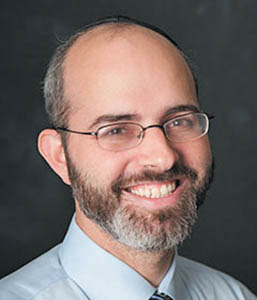
These words of Torah are dedicated to the aliyah of the neshamah of our dear friend and role model, Menachem Mendel Ben Harav Yoel David Balk a”h, on the occasion of his first Yahrtzeit.
This week we learned Bava Metzia 112. Here are some highlights.
Bava Metzia 112: Is pro football a kosher profession?
As Jews, we acknowledge that God owns our bodies and souls. We may not inflict harm on our body for it is not ours. “V’nishmartem me’od l’nafshoteichem, And you are to greatly protect your souls,” is a mandate not to do dangerous things. Rambam (Hilchot Rotzei’ach Ushemirat Nefesh 12:6) ruled: “It is forbidden for a man to walk under a tilting wall,” for a person may not perform dangerous acts that might injure his limbs or endanger his life. Based on these rules, Rav Moshe Feinstein (Igrot Moshe, Choshen Mishpat Chelek Alef Siman 104) was asked by a Jew if he could work as a professional football player. Pro football is innately dangerous. Many players suffer concussions and other injuries. May a Jew take such a job?
Based on our Gemara, Rav Moshe ruled that pro football is a kosher profession. Our Gemara is discussing the mitzvah to pay a worker on time. The Torah states: “V’eilav hu nosei et nafsho, And to it he lifts his life” (Devarim 24:15). Our Gemara explains that the verse was providing inspiration to an employer to pay in a timely manner: “Why did this employee climb a tree to pick a fruit? Why did he climb a rickety ladder and lift his life to possible death? Only for the sake of his wage!” Since the worker risks his life for his wage, the employer should be appreciative and pay the wage immediately when it comes due. The Gemara clearly indicates that for the sake of earning a wage a worker may climb a tree or a rickety ladder; therefore, one can play pro football for pay as well. Pro football is dangerous. However, our Torah allows a man to do somewhat dangerous work in order to earn a wage.
Some might ask, while it is permissible to endanger oneself for pay, in professional football the player is also at risk of harming others, so perhaps it should be forbidden? Rav Moshe argued that just as Halacha permits the employee to take on a job that has some risk to his own health, he may do a job that will put the health of others at a bit of risk, since they too are willing to assume that risk. If it would be prohibited to put others at a bit of risk, how could the tree owner in the scenario of our daf hire a worker to climb his tree? He is endangering another person. “V’eilav hu nosei et nafsho” permits the employee and employer to create situations of danger for the sake of profit.
Shu”t Noda BeYehuda (Mahadura Tinyana Yoreh Dei’ah Siman 10) also quotes our Gemara. Noda BeYehuda dealt there with the question: May a Jew hunt? He concludes that a Jew should not hunt for leisure. Hunting creates cruelty within the personality. It is also innately dangerous. Esav was a hunter. When he came back from his hunting he told Yaakov that he feared he would die. Hunting in a forest with beasts of prey is innately a danger to a person. A Jew may not engage in activity that is risky to his health. However, if a Jew needed to hunt to earn a living he may do so. Our Gemara teaches that one may climb a tree and enter danger to earn a wage. Therefore, for livelihood, hunting would be permitted. (Mesivta)
By Rabbi Zev Reichman










